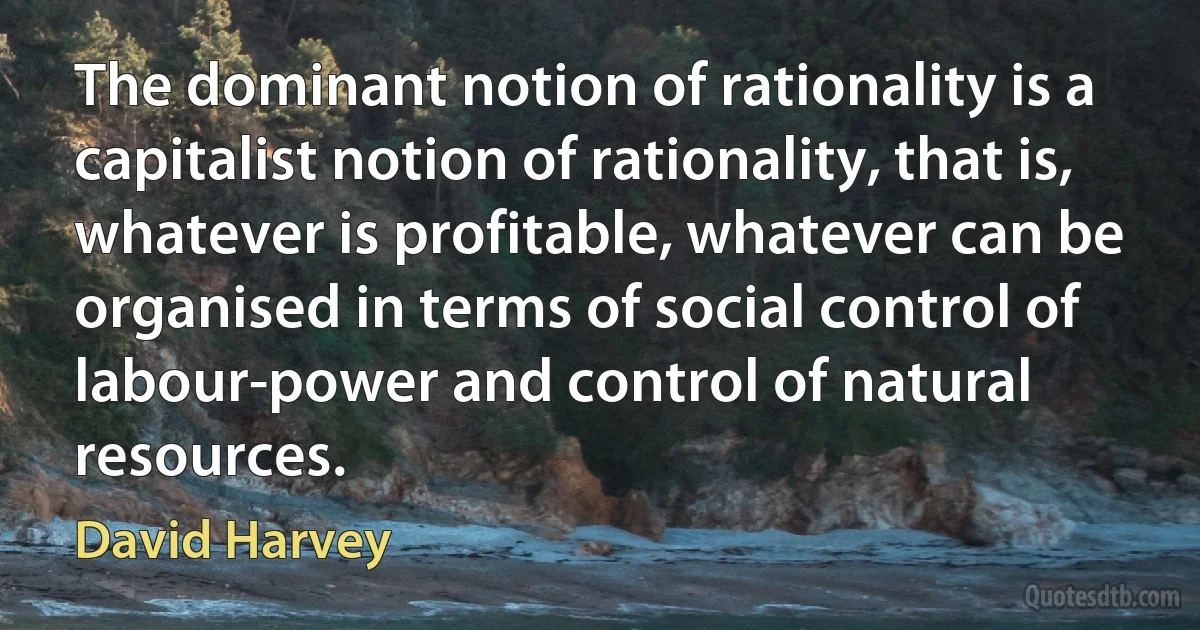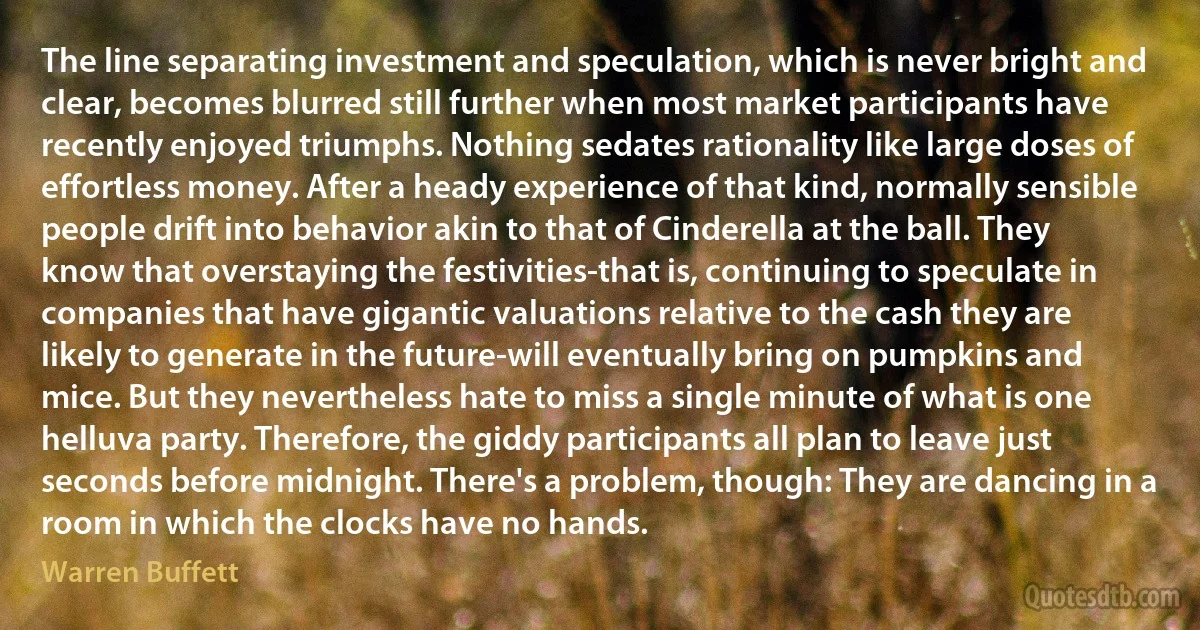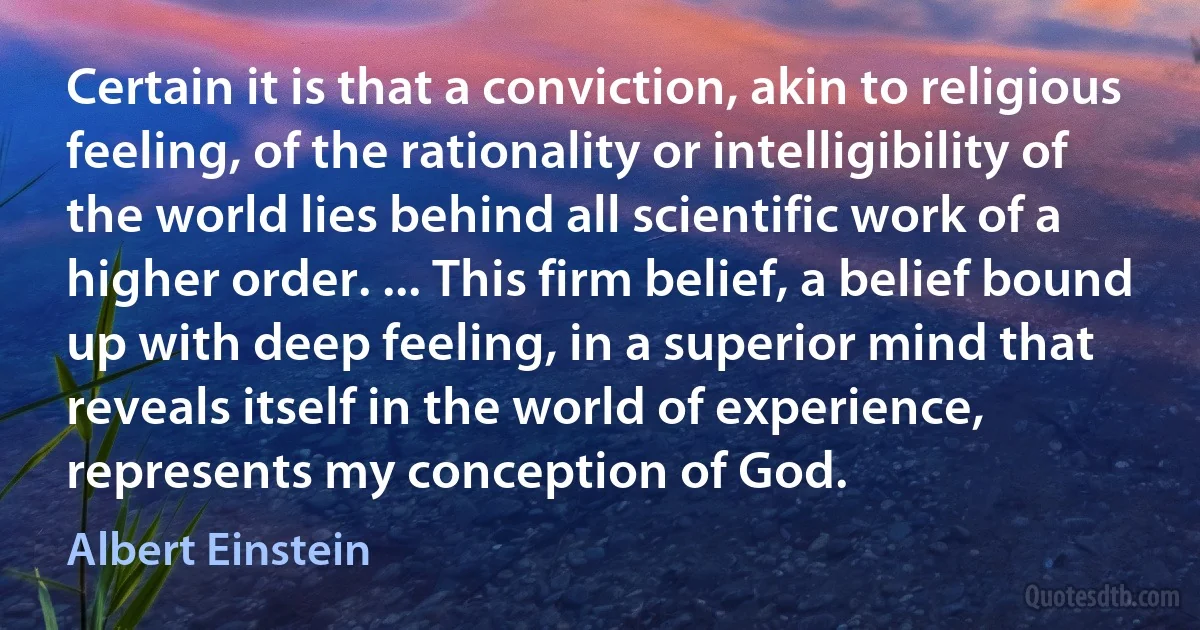Rationality Quotes - page 4
Science and religion, then, are competitors in the business of finding out what is true about our universe. In this goal religion has failed miserably, for its tools for discerning "truth” are useless. These areas are incompatible in precisely the same way, and in the same sense, that rationality is incompatible with irrationality.

Jerry Coyne
The correct analogy for the mind is not a vessel that needs filling, but wood that needs igniting - no more - and then it motivates one towards originality and instills the desire for truth. Suppose someone were to go and ask his neighbors for fire and find a substantial blaze there, and just stay there continually warming himself: that is no different from someone who goes to someone else to get to some of his rationality, and fails to realize that he ought to ignite his own flame, his own intellect, but is happy to sit entranced by the lecture, and the words trigger only associative thinking and bring, as it were, only a flush to his cheeks and a glow to his limbs; but he has not dispelled or dispersed, in the warm light of philosophy, the internal dank gloom of his mind.

Plutarch
Theodicy is the Achilles Heel of faith. There is no reasonable answer to the problem of gratuitous evil (i. e., the slaughter of children or mass killings by natural phenomena like tsunamis), and the will to continue believing in the face of such things truly shows the folly of faith. For those evils prove absolutely either that God is not benevolent and omnipotent, or that there is no god. (Special pleading like "we don't know God's mind” doesn't wash, for the same people who say such things also claim to know that God is benevolent and omnipotent). Both nonbelief or belief in a malicious or uncaring God are unacceptable to the goddy. Ergo, any rational person who contemplates gratuitous evil must become an agnostic, an atheist, or someone who rejects the Abrahamic God. It is a touchstone of rationality.

Jerry Coyne
Although this book deals with the conflict between religion and science, I see this as only one battle in a wider war-a war between rationality and superstition. Religion is but a single brand of superstition (others include beliefs in astrology, paranormal phenomena, homeopathy, and spiritual healing), but it is the most widespread and harmful form of superstition. And science is but one form of rationality (philosophy and mathematics are others), but it is a highly developed form, and the only one capable of describing and understanding reality.

Jerry Coyne
Hayek's theory of evolutionary rationality shows how traditions and customs (those surrounding sexual relations, for example) might be reasonable solutions to complex social problems, even when, and especially when, no clear rational grounds can be provided to the individual for obeying them. These customs have been selected by the ‘‘invisible hand'' of social reproduction, and societies that reject them will soon enter the condition of ‘‘maladaptation,'' which is the normal prelude to extinction.

Roger Scruton
What, finally, are the functions of reason and rationality in human behaviors? They are the functions, respectively, of the prince's tutor and his councilor. The tutor teaches the prince to promote the public good in the long term. The councilor tells him how to act in order to achieve his goals, whatever they might be, in the most efficient way. It is not incumbent upon the councilor to impose the demands of reason; but if the tutor has done his job well, the prince will make them his own.

Jon Elster
Acting in conformity with reason, in the singular, and acting for good reasons, in the plural, are two different things insofar as reason is objective, whereas reasons are subjective. From an external point of view, we can evaluate a policy as being in conformity with reason or not. From an internal point of view, one can evaluate an action as being rational or not. From this difference it follows that only rationality can be used for explanatory ends. It is only insofar as the agent has made the demands of reason his own that the latter may give rise to, and possibly explain, specific behaviors. The assessment of the actor and that of the observer need not coincide.

Jon Elster
The streak of rationality and questioning tradition too came early to him. Once a multicoloured book on the shelf at home caught his attention and he decided to read it, despite it being in Sanskrit, of which he understood very little. When Damodarpant discovered that his young son was reading the Aranyaka s he was enraged. There was a superstition that reading the Aranyaka s at home forebodes evil for the reader's worldly life and they needed to be read in seclusion in the woods. This left a lasting question in Vinayak's mind. How could someone as intelligent as his father believe in such superstitions?, he wondered. Mocking the belief, he continued reading the book without anyone's knowledge and proved to himself that this was just a fanciful and concocted tale.

Vinayak Damodar Savarkar
As conceived in this book, economics is the science of rational choice in a world─our world─in which resources are limited in relation to human wants. The task of economics, so defined, is to explore the implications of assuming that man is a rational maximizer of his ends in life, his satisfactions─what we shall call his "self-interest.” Rational maximization should not be confused with conscious calculation. Economics is not a thoery about consciousness. Behavior is rational when it conforms to the model of rational choice, whatever the state of mind of the chooser.(...) Nor is perfect rationality assumed; rational-choice thoery allows us to assume that rationality is "bounded” because of human cognitive limitations, although another way to think of those limitations is as costs of absorbing and using information.

Richard Posner
As the natural sciences have developed to encompass increasingly complex systems, scientific rationality has become ever more statistical, or probabilistic. The deterministic classical mechanics of the enlightenment was revolutionized by the near-equilibrium statistical mechanics of late 19th century atomists, by quantum mechanics in the early 20th century, and by the far-from-equilibrium complexity theorists of the later 20th century. Mathematical neo-Darwinism, information theory, and quantitative social sciences compounded the trend. Forces, objects, and natural types were progressively dissolved into statistical distributions: heterogeneous clouds, entropy deviations, wave functions, gene frequencies, noise-signal ratios and redundancies, dissipative structures, and complex systems at the edge of chaos.

Nick Land
Logical empiricism holds the view, notwithstanding some its assertions, that the forms of knowledge and consequently the relations of man to nature and to other men never change. According to rationalism, too, all subjective and objective potentialities are rooted in insights which the individual already possesses, but rationality uses existing objects as well as the active inner striving and ideas of man to construct standards for the future. In this regard, it is not so closely associated with the present order as is empiricism.

Max Horkheimer
No criticism can be brought against a branch of technical science from outside; no thought fitted out with the knowledge of a period and setting its course by definite historical aims could have anything to say to the specialist. Such thought and the critical, dialectical element it communicates to the process of cognition, thereby maintaining conscious connection between that process and historical life, do not exist for empiricism; nor do the associated categories, such as the distinction between essence and appearance, identity in change, and rationality of ends, indeed, the concept of man, of personality, even of society and class taken in the sense that presupposes specific viewpoints and directions of interest.

Max Horkheimer
Even though principles of rationality seem as often violated as followed, we still cling to the notion that human thought should be rational, logical, and orderly. Much of law is based upon the concept of rational thought and behavior. Much of economic theory is based upon the model of the rational human who attempts to optimize personal benefit, utility, or comfort. Many scientists who study artificial intelligence use the mathematics of formal logic-the predicate calculus-as their major tool to simulate thought. [...] Human thought is not like logic; it is fundamentally different in kind and spirit. The difference is neither worse nor better. But it is the difference that leads to creative discovery and to great robustness of behavior.

Donald Norman
The dominant system of power in the west has been Platonist - a system which functions on highly developed levels of structure and law. This is the school of pure rationality and fear of the undefined - fear of doubt. The minority system has been Socratic or humanist. It is interested in doubt and not overwhelmed by the Platonist-Hobbesian desperate need to tie things down.

John Ralston Saul
You like to imagine yourself in control of your fate, consciously planning the course of your life as best you can. But you are largely unaware of how deeply your emotions dominate you. They make you veer toward ideas that soothe your ego. They make you look for evidence that confirms what you already want to believe. They make you see what you want to see, depending on your mood, and this disconnect from reality is the source of the bad decisions and negative patterns that haunt your life. Rationality is the ability to counteract these emotional effects, to think instead of react, to open your mind to what is really happening, as opposed to what you are feeling. It does not come naturally; it is a power we must cultivate, but in doing so we realize our greatest potential.

Robert Greene
We have a side to our character that we are generally unaware of-our social personality, the different person we become when we operate in groups of people. In the group setting, we unconsciously imitate what others are saying and doing. We think differently, more concerned with fitting in and believing what others believe. We feel different emotions, infected by the group mood. We are more prone to taking risks, to acting irrationally, because everyone else is. This social personality can come to dominate who we are. Listening so much to others and conforming our behavior to them, we slowly lose a sense of our uniqueness and the ability to think for ourselves. The only solution is to develop self-awareness and a superior understanding of the changes that occur in us in groups. With such intelligence, we can become superior social actors, able to outwardly fit in and cooperate with others on a high level, while retaining our independence and rationality.

Robert Greene



